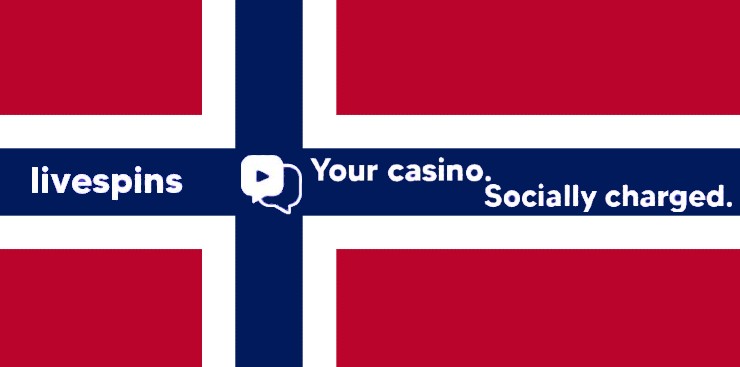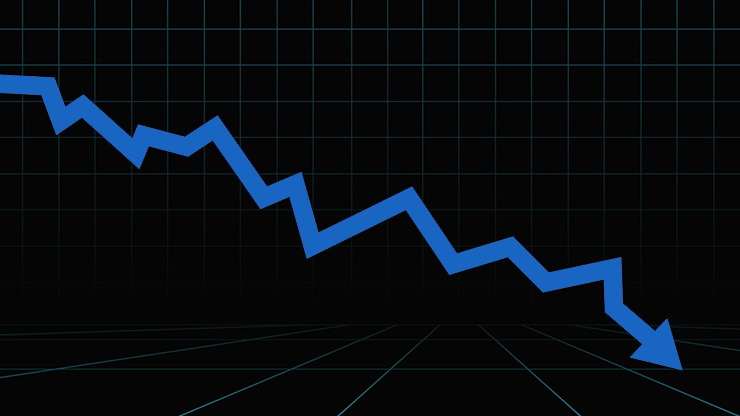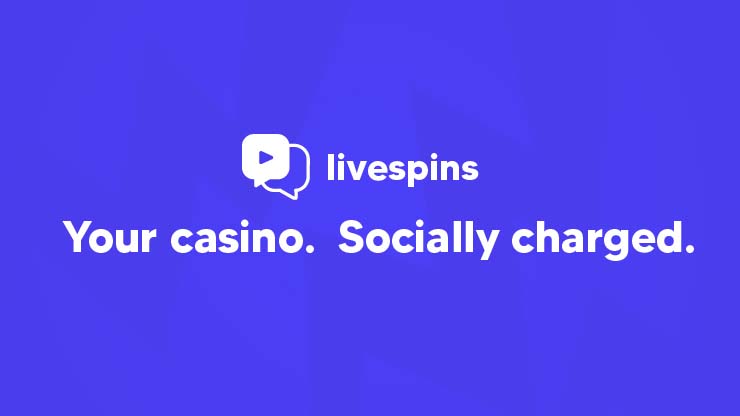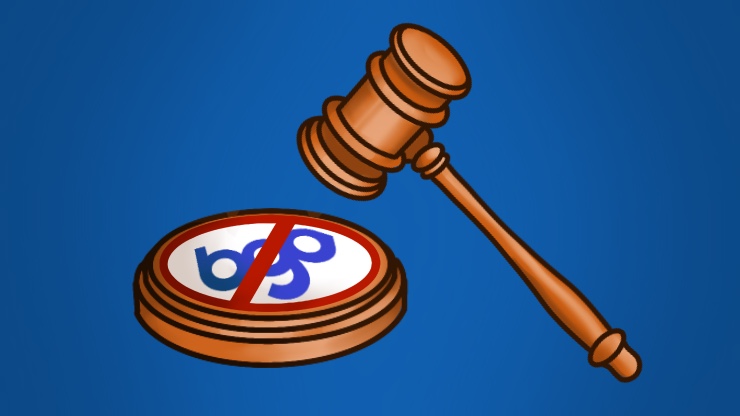Gambling Revenue in the USA in 2021: The Rise and Fall (and Rise?) of an American Empire?
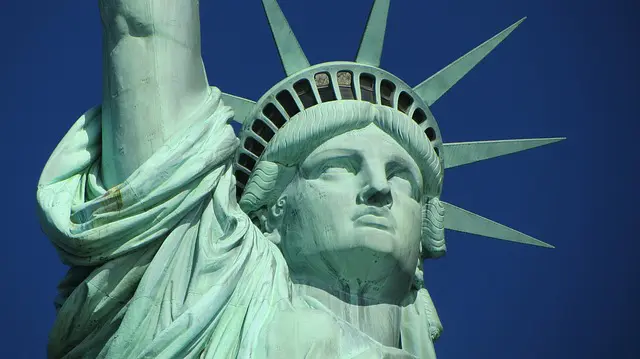
When the COVID-19 pandemic and its subsequent lockdowns hit in early 2020, the future looked grim for most of the American hospitality industry — casinos included. Many businesses such as bars and restaurants shuttered their doors completely during this time, so it was worth wondering how hard the gaming industry would be hit — or if it could even survive at all.
All of this was mere speculation, of course, as at the time there was little in the way of reliable data that pointed one direction or the other in regards to the industry’s future. However, we now have some financial information that will give us a clearer picture of the immediate and mid-term future of the American gambling market, and one thing seems clear:
The endless amounts of worrying and hand-wringing about the health of the casino industry were completely unnecessary.
The State of the American Gaming Industry in 2021
As is to be expected, gaming revenues plummeted during the months when pandemic-related lockdowns were the strictest. Beginning in March 2020 and continuing on through much of the fall of that year, commercial gaming revenues were at all-time lows, as many brick-and-mortar casinos were forced to stop conducting business completely.[1]
The response to the pandemic, including the timeline for opening non-essential businesses, has varied wildly from state to state. As a result, while some of the data we have is indicative of a robust recovery, the overall numbers still flag a bit compared to what we’d otherwise expect.
However, if we want to draw conclusive inferences about the state of the industry in a proper historical context, it’s best if we throw out much of the data from a once-in-a-century catastrophe. To put the numbers in a suitable perspective, then, it’s best if we compare the data from 2021 to corresponding time periods from 2019, before the pandemic hit.
Rather than ignore the effects of the pandemic entirely, though, we’ll first look at how deeply it impacted the industry before we examine the ways in which casinos are digging themselves out of a trying situation.
A Year to Be (Largely) Forgotten
Revenue dropped over 31% for the fiscal year 2020, the first time the market has contracted since 2014.[2] Total revenues clocked in at around $30 billion, the lowest overall total since 2003.
The numbers get even more grim from there. Commercial casinos lost roughly 27% of their potential operating days, and every single state with commercial casinos saw those businesses lose revenue compared to 2019.[3]
Table games were the biggest losers, with revenue dropping nearly 40%, and slot machine revenue was also down 33.8%.
The news wasn’t all bad, however. The increasing legalization of sports betting saw revenues in that sector jump by 69%, bringing in nearly $1.6 billion in revenue.[4] Online gaming also grew significantly in the states in which it’s legal, tripling the revenue numbers from 2019.
May 2021: A Snapshot of a Recovery in Progress
While 2019 saw revenues dwindling nearly across the board, 2021 has been a much different story. In fact, the profits generated in the first few months of the year have been record-setting, and the overall revenue for the first quarter of the year matches the all-time high.
Brick-and-mortar revenues still lagged a bit behind previous years, but the money brought in from iGaming institutions and sports betting more than made up for it. If anything, this portends well for the future, as live casino revenue is expected to rise considerably once COVID-19 restrictions have been fully lifted, and there’s no reason to believe that online and sports betting should experience a corresponding dip when it does.
The torrid pace continued into May, which is the most recent period for which reliable data is available. Money brought in by traditional gaming exceeded 2019 levels from the same time period, with the overall figure sitting at $4.09 billion — an all-time monthly record.[1]
Most encouragingly, slots and table games also set monthly records, at $2.96 billion and $795.6 million, respectively. That represents an increase of up to 37% when compared to pre-pandemic levels.
To be fair, those record numbers may simply be indicative of an entertainment-starved public that’s eager to get out of the house and have fun again — meaning, it may not be sustainable. Then again, given that much of the public is still wary about venturing out in public at all (assuming it’s legal to do so), this could be the sign of an impending massive upswell in gaming revenue.
How Individual States Fared
There are only 25 states with physical casinos in the USA, and each state saw a decrease in revenue during the 2020 lockdowns. Those decreases weren’t all equal, however, and some markets were hit harder than others.[2]
A large portion of that was due to the different severity of lockdowns in each state. For example, New Mexico had one of the strictest lockdown protocols, as casinos were shut down in March and required to keep their doors closed throughout the rest of the year. Not surprisingly, the state also experienced the steepest decline in overall gaming revenue.
On the other hand, South Dakota only forced casinos to close for 7 weeks before reopening. This short hiatus led to minimal decline.
Overall, of the 25 states in which commercial gaming is legal, only three (Kansas, Rhode Island, and Maine) saw their 2021 revenue dip below that of 2019 — good news for the future of gambling in every state.
This caused a shakeup in the size of the individual markets as well. Unsurprisingly, Las Vegas and Atlantic City remained the top overall gaming markets in the country, but further down the list there was quite a bit of upheaval.
The New York and Detroit markets saw steep decline; again, this is likely due as much to COVID restrictions as anything. Markets in states with more lenient lockdown requirements were able to climb the rankings, however, with the Gulf Coast (MS) and St. Louis (MO) markets seeing sizable increases. Most notably, the Baltimore/Washington, D.C., market displaced Chicagoland as the third-largest market.
A Tale of Two Countries: How the US Market Compares to the One Up North
While the American figures do a good job of demonstrating the impact that COVID-19 has had on the domestic gambling industry, they become even more demonstrative when compared to those of the neighbors to the north.
The two countries inadvertently provided excellent case studies for comparison on a variety of fronts, not just the effects of the lockdown. They’re both starting to incorporate sports betting into their legal offerings, and both are still struggling to navigate the murky waters stirred up by internet gambling in their respective jurisdictions.
While both nations rank among the largest gambling markets in the world (with the USA clocking in at #2 and Canada #8 overall), their growth appears to be on drastically different trajectories.[5] Looking at both in greater detail may provide a few hints as to where both markets will be heading in the years to come.
The Impact of the Pandemic on Both Markets
While both the USA and Canada locked down non-essential businesses, including casinos, at some point during 2020, their respective approaches could not be more different.
In Canada, the lockdowns were so extreme that many places even stopped selling lottery tickets in public places, forcing the lotto to transition to a digital-only model. It’s no surprise, then, that many casinos were forced to close their doors for the majority of 2020, and many have yet to fully reopen (and some, of course, will never reopen again).[6]
As we’ve already seen in the USA, states didn’t all close and open at the same rates, so the impact was not uniform across the industry. Even casinos in the states with the most stringent lockdown protocols reopened their doors for business sooner than some of their Canadian counterparts.
As a result, while the American gaming industry saw a sizable dip in their revenues, it was nothing compared to what the Canadian market experienced. Some gaming establishments felt revenue losses in the 9-figure range, and while the expectation is that those losses will be made up in time, the industry certainly isn’t experiencing the same record-breaking months in 2021 that the American market is enjoying.[7]
If anything, the Canadian gaming industry is slowly sputtering back to life (or at least that’s the case for brick-and-mortar establishments). Also worrisome is the fact that, in the years leading up to the pandemic, the market had reached something of a plateau, indicating that massive growth may not still be possible.[8]
However, while it may not reach the same heights as the American market — or get there as quickly — industry insiders are still bullish on the long-term health of the market for two reasons: sports betting and online gaming.
New Sports Betting Laws Poised to Dramatically Alter the Gambling Landscape in Both Countries
The battle to bring sports betting to the US market has been long and filled with messy litigation, but the fight appears to finally be drawing to a close.
At press time, sports betting is legal in some form (with certain restrictions in many cases) in 21 different states (plus Washington, D.C.), with 9 more seemingly poised to join them in the next few years.[9] In fact, there currently are only two states — Idaho and Wisconsin — that aren’t experiencing any legislative activity towards legalizing betting on sports within their borders. The only state that appears unlikely to move towards legalization anytime soon is Utah.
In Canada, sports betting has long been legal — but only in parlays. Betting on a single sporting event wasn’t allowed, but that will soon change thanks to the passage of C-218, a bill that was first introduced in February 2020.[10] The bill will allow gamblers to wager on the outcomes of individual games, fights, and races as soon as it receives royal approval.
C-218 is expected to be a massive moneymaker for the country, as it could generate as much as $5 billion annually; this includes betting on single sporting outcomes, as well as wagering on daily fantasy contests and the like.[11] Canada has a rich sports market, as its citizens are fans of the big four American sports, not to mention various soccer leagues and other international events.
While that fresh influx of new cash will go a long way towards propping up the Canadian market after the damage done by COVID-19, it pales in comparison with what the US market has to offer. In fact, sports betting in America is already big business, as there was a nearly $4 billion handle in May 2020, generating revenues of nearly $300 million.[1]
How the Rise in Internet Gambling is Affecting Both Countries
Canada may be playing catch-up to the United States in terms of betting on sports, but when it comes to internet gaming, it’s the other way around.
The legality of internet gambling is somewhat complicated in Canada, but it boils down to this: it’s legal to play online, and no Canadian has ever been prosecuted for doing so. It’s not like the government has lacked opportunities, either — over $500 million is spent on internet gambling every year in Ontario alone.[12]
By comparison, the road to legalization has been much more rocky in the USA. For many years, the government largely looked the other way, allowing internet gaming to exist in a legal gray area. That all changed with the passage of the Unlawful Internet Gambling Enforcement Act (UIGEA) of 2006 and its subsequent enforcement in 2011.[13]
However, the UIGEA only made it illegal to operate an online casino in the US — it didn’t prohibit American gamblers from playing on one. As a result, several casinos never left the market, and more seem poised to return in the near future.
While the UIGEA put a sizable dent in the American online gambling market, it didn’t stamp it out completely. Many gamblers simply used VPNs and other technology to move to other markets — including Canada’s.
Since the passage of that legislation, the federal government has largely been content to allow states to make their own rules about internet gambling, and several — including New Jersey, Pennsylvania, and Nevada — have legalized it in one way or another
In fact, almost every state allows some form of internet gambling, whether it’s buying digital lottery tickets, playing daily fantasy sports games, or full-on casinos. The only two holdouts at this time are Utah and Hawaii.
Online gambling is wildly successful in most of the states in which it’s accepted. In May 2021, for example, online operators in New Jersey reported profits in excess of $100 million, and Pennsylvania’s operators nearly matched that figure.[14] On a national scale, internet gambling brought in nearly $310 million in that month, just shy of the record-setting $311 million generated a few months earlier.
While it will likely be some time before internet gaming revenues can meet or exceed those generated by brick-and-mortar casinos, it appears that gambling online is already popular in the USA and Canada — and seems poised to become even more so in the years to come.
What About the UK?
While Canada may present a more logical point of comparison due to its geographical proximity, the United Kingdom may actually be a more relevant counterpoint to the American market.
Even that comparison isn’t perfect, though, as the UK has a more accepted and established gambling culture than the USA. However, the lockdown had quite the damaging effect on the British gambling industry as well, and the official government response was just as up-and-down as many you’d find in the States.[15][16]
However, sports betting and online gaming are much better established in Great Britain than they are in either the United States or Canada, and gamblers were quick to transition to mobile gaming platforms when their brick-and-mortar establishments were shut down.[17]
That’s not to say that COVID-19 didn’t have a debilitating effect on the British gambling economy; it most certainly did, as licensed gambling premises fell by 6.4% during the lockdown period.[18] However, the architecture was already in place to give gamblers alternative means to wager, and many British punters had long been familiar with online gambling.
Still, many players who would normally wager at a brick-and-mortar establishment focused their efforts on internet casinos instead.[19][20] It’s expected that some of those players will continue to spend the majority of their playing hours on the internet, but many are expected to return to their favorite betting parlors once the lockdown is fully lifted.
When British players are finally allowed to fully return to their pre-pandemic lifestyles, there may be a bit of a bump in gaming revenue in the first few months. However, given how entrenched all forms of gambling already are in the UK, it’s unlikely that the room exists for the same type of massive growth that’s expected in the United States and, to a lesser extent, Canada.
Will the US Market Continue to Grow?
Recent record profits generated by both the land-based and internet gambling industries in America would seem to suggest that the market is poised for a period of explosive growth.
Despite this success, however, the entire industry is still in a state of flux. It remains to be seen whether these record-breaking months are simply due to the release of a pent-up urge to get out of the house or if they represent the new normal. Likewise, the threat of more COVID-related lockdowns, both here and abroad, could once again throw the entire industry into a state of disarray.[21]
The sheer variety of entertainment options now offered to the American public by the gambling industry should help insulate it somewhat from the possibility of future downturns. With sports betting set to join traditional table games, lotteries, and bingo offerings, there should always be something to entice the American gambler.
And if the casinos shut down again, there’s always the internet.
“AGA Commercial Gaming Revenue Tracker – American Gaming Association.” [Online]. Available: https://www.americangaming.org/resources/aga-commercial-gaming-revenue-tracker/. [Accessed: 02-Sep-2021].
“State of the States 2021 – American Gaming Association.” [Online]. Available: https://www.americangaming.org/resources/state-of-the-states-2021/. [Accessed: 02-Sep-2021].
“Casino Industry Report Charts Sharp Drop in 2020 Revenues | Nevada News | US News.” [Online]. Available: https://www.usnews.com/news/best-states/nevada/articles/2021-02-17/casino-industry-report-charts-sharp-drop-in-2020-revenues. [Accessed: 02-Sep-2021].
“Map: The states that have legalized sports betting – Axios.” [Online]. Available: https://www.axios.com/sports-betting-legalized-what-states-4a26bb27-d88f-4adf-a908-6e10441ed855.html. [Accessed: 02-Sep-2021].
“Top Countries & Markets by Game Revenues | Biggest Games Markets.” [Online]. Available: https://newzoo.com/insights/rankings/top-10-countries-by-game-revenues/. [Accessed: 02-Sep-2021].
“Gambling in Canada – Industry Data, Trends, Stats | IBISWorld.” [Online]. Available: https://www.ibisworld.com/canada/market-research-reports/gambling-industry/. [Accessed: 02-Sep-2021].
“Great Canadian Gaming Announces First Quarter 2021 Results.” [Online]. Available: https://www.newswire.ca/news-releases/great-canadian-gaming-announces-first-quarter-2021-results-832490557.html. [Accessed: 02-Sep-2021].
“• Gambling sector market size Canada 2021 | Statista.” [Online]. Available: https://www.statista.com/statistics/1186307/gambling-industry-market-size-canada/. [Accessed: 02-Sep-2021].
“The United States of sports betting – Where all 50 states stand on legalization.” [Online]. Available: https://www.espn.com/chalk/story/_/id/19740480/the-united-states-sports-betting-where-all-50-states-stand-legalization. [Accessed: 02-Sep-2021].
“Senate Passes Bill C-218 Legalizing Single-Event Sports Betting in Canada | Blake, Cassels & Graydon LLP – JDSupra.” [Online]. Available: https://www.jdsupra.com/legalnews/senate-passes-bill-c-218-legalizing-1574716/. [Accessed: 02-Sep-2021].
“Single-Event Sports Wagers Set to Launch in Canada – GamblingNews.” [Online]. Available: https://www.gamblingnews.com/news/single-event-sports-wagers-set-to-launch-in-canada/. [Accessed: 02-Sep-2021].
“Online Gambling Firms Expect Ontario to Lift Key Operator Ban – Bloomberg.” [Online]. Available: https://www.bloomberg.com/news/articles/2020-11-02/online-gambling-firms-expect-ontario-to-lift-key-operator-ban. [Accessed: 02-Sep-2021].
“Unlawful Internet Gambling Enforcement Act of 2006,” 2006.
“The United States Igaming Revenue Report — May 2021 – CDC Gaming Reports.” [Online]. Available: https://www.cdcgamingreports.com/the-united-states-igaming-revenue-report-may-2021/. [Accessed: 02-Sep-2021].
“Industry Statistics – May 2021 – Gambling Commission.” [Online]. Available: https://www.gamblingcommission.gov.uk/statistics-and-research/publication/industry-statistics-may-2021. [Accessed: 02-Sep-2021].
Institute for Government, “Timeline of UK coronavirus lockdowns, March 2020 to March 2021 ,” 2021.
“UK Online Gambling Revenue and Statistics 2020-2025 – Business Telegraph.” [Online]. Available: https://www.businesstelegraph.co.uk/uk-online-gambling-revenue-and-statistics-2020-2025/. [Accessed: 02-Sep-2021].
“Industry Statistics – November 2020 – Gambling Commission.” [Online]. Available: https://www.gamblingcommission.gov.uk/statistics-and-research/publication/industry-statistics-november-2020. [Accessed: 02-Sep-2021].
A. Emond, A. Nairn, S. Collard, and L. Hollén, “Gambling by Young Adults in the UK During COVID-19 Lockdown,” J. Gambl. Stud., 2021.
“Study shows online gambling soared during lockdown, especially among regular gamblers — ScienceDaily.” [Online]. Available: https://www.sciencedaily.com/releases/2021/05/210517083636.htm. [Accessed: 02-Sep-2021].
“U.K. Businesses Raise Fears of Future Lockdowns as Cases Rise – Bloomberg.” [Online]. Available: https://www.bloomberg.com/news/articles/2021-06-06/u-k-businesses-raise-fears-of-future-lockdowns-as-cases-rise. [Accessed: 02-Sep-2021].
Latest articles

Latest Americas Cardroom Promo...

Best Sports Betting Sites in N...

Shazam Casino Review – Shazam ...








